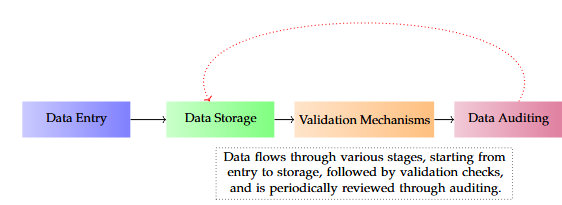Optimizing Data Quality in Electronic Medical Records: Addressing Fragmentation, Inconsistencies, and Data Integrity Issues in Healthcare
Keywords:
data integrity, data quality, EMRs, healthcare data management, interoperability, real-time validation, training programsAbstract
Electronic Medical Records (EMRs) have become the foundation of healthcare data management, allowing for the efficient storage, retrieval, and exchange of patient information. The realization of these benefits is often hampered by persistent issues related to data quality. Healthcare providers frequently encounter different problems such as fragmented data distributed across incompatible systems, inconsistent data entry practices, and difficulties in maintaining data integrity. The widespread use of multiple data sources and formats contributes to these challenges, leading to incomplete records and a lack of uniformity. In addition, the absence of real-time data validation and inadequate training of healthcare personnel exacerbate these issues. Addressing these complexities requires the integration of robust validation mechanisms, targeted training programs, and the implementation of data provenance strategies to improve traceability and accountability. If these problems can systematically be tackled, EMRs can better serve their intended purpose of supporting accurate and timely clinical decision-making. This research aims to identify and resolve the core challenges affecting data quality in EMRs

